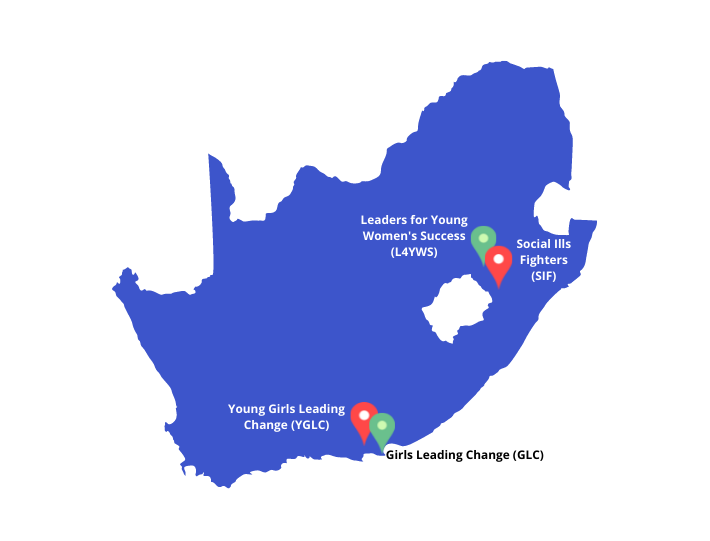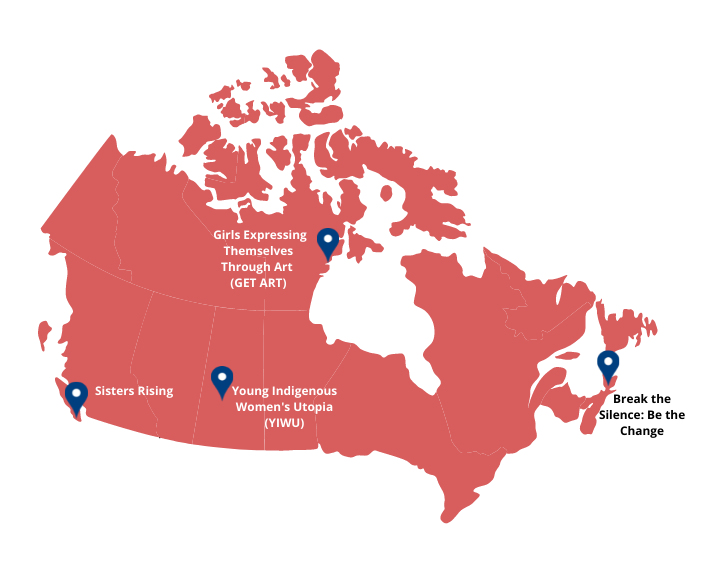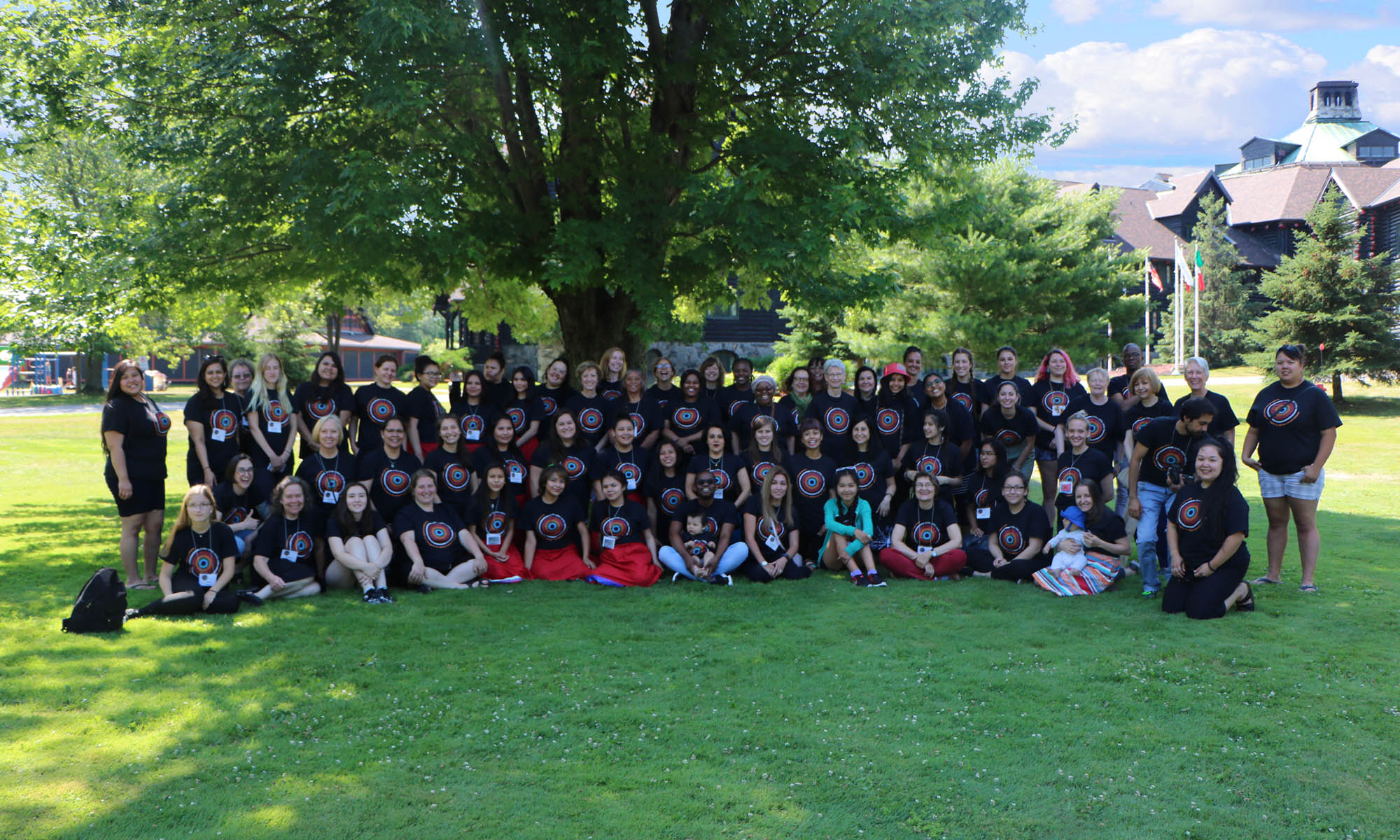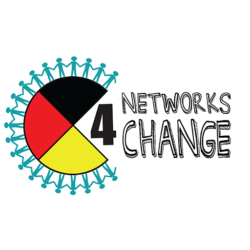To dates there are multiple field sites across South Africa and Canada, led by project partners, co-investigators and local collaborators. Each site is focused on youth-led media making, community-based research, participatory action research, research as intervention, and research as social change.

South Africa
Girls Leading Change (GLC)
Gqeberha, Eastern Cape, South Africa
GLC started as a group of 14 education students at Nelson Mandela University in 2013, working together to address GBV in their university and their community. Through photovoice, cellphilm, writing retreats, and music elicitation, girls revisited their own experiences of GBV and emerged more powerful. These young women, now teachers in different communities, are agents of change inciting their students to be more conscious of GBV.
Leaders for Young Women’s Success (L4YWS)
Khetani, KwaZulu-Natal, South Africa
Through the creation of visual artefacts, L4YWS aim to provide girl-led evidence on how poverty, gender norms and hegemonic masculinity make girls and young women vulnerable to GBV. Their artefacts reveal the extremely harsh consequences of GBV in their community, which include pregnancy, HIV, and death from suicide and feminicide. Importantly, their images also show that the L4YWS hope to create change in their community through collective action.
Social Ills Fighters (SIFs)
Loskop, KwaZulu-Natal, South Africa
SIFs is made up of a group of girls and young women contributing to create change in their community. They use art to show how cultural practices and traditional gender norms, including forced and early marriage (FEM), are experienced by girls and young women as violence. Their efforts ignited dialogue with traditional leadership, police, schools and other stakeholders to create change in their community. Their creative work led to the adoption of the “Reporting and Response Protocol on forced and early marriage in eMangweni” in March 2020, by which eMangweni authorities committed to address FEM and support the victims.
Young Girls Leading Change (YGLC)
Paterson, Eastern Cape, South Africa
YGLC is made up of a group of 7 girls at a secondary school who came together in 2015 to address the problem of GBV in their school and their community. Mentored by Girls Leading Change, they used cellphilms, policy posters, and action briefs to lead a community dialogue, giving their perspective on how this problem should be addressed.

Canada
Break the Silence: Be the Change
Eskasoni, Nova Scotia, Canada
Located on Cape Breton Island, within the Unama’gi district of Mi’kmaq territory, Eskasoni is the largest Aboriginal community in Atlantic Canada. Break the Silence: Be the Change is a community-based project aimed at changing dialogue and awareness around sexual violence. Youth aged 16-22 have conducted research and initiated conversations focusing on relationships, community, and violence as it relates to sex and sexuality. Work takes place against the historical backdrop of colonial violence, intergenerational trauma, and continuing legacies of socioeconomic marginalization.
Girls Expressing Themselves Through Art (GET ART)
Rankin Inlet, Nunavut, Canada
Located on the west coast of the Hudson Bay in Nunavut, the GET ART program was launched in recognition of the need to create a space within the community where local Inuit girls could come together and express themselves. Engaging with participatory visual methods, the girls have produced music videos and cellphilms addressing bullying, gender-based violence, food insecurity and much more.
Sisters Rising
lək̓ʷəŋən and WSÁNEĆ homelands, in what is colonially known as British Columbia, Canada
Sisters Rising, located on lək̓ʷəŋən and WSÁNEĆ homelands, brings together Indigenous youth of all genders as well as community members, knowledge keepers and Elders in Indigenous communities on B.C.’s west coast. Sisters Rising creates Indigenous-led responses to gendered and sexualized violence by challenging the victim-blaming climate of violence, and linking issues of body sovereignty to decolonization and land sovereignty. Our project engages land and water-based workshops, art making, multimedia storytelling and collective action to re-center Indigenous concepts of gender and sexual health, wellbeing, and resurgence.
Young Indigenous Women’s Utopia (YIWU)
Treaty 6 & the Traditional Homeland of the Métis/Saskatoon, Saskatchewan, Canada
YIWU is made up of a group of girls and young women exploring and navigating the colonial and gendered violent contexts that they survive and exist within. Empowered by each other and their Nehiwayan and Michif ways, these young women explore self-love as a first form of resistance. They were awarded the 2020 national Indspire ‘Guiding the Journey’ award, that recognizes contributions to community-based education honouring the principles of Indigenous knowledge.

